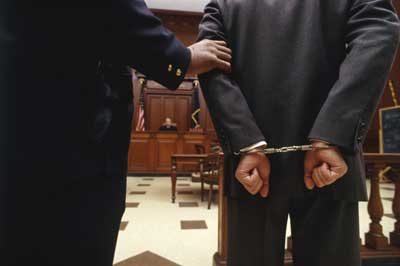Summary: Judge E. Susan Garsh ruled that evidence obtained from two cell phones and three tablets will not be admissible at the murder trial set for January. Hernandez is accused of shooting Odin Lloyd in North Attleboro, Massachusetts after a disagreement the two had at a Boston nightclub in 2013.
A judge has ruled that evidence taken from two cell phones and three iPads will not be admissible at Aaron Hernandez’s January 9 trial, Fox Sports has reported. The items were taken from the former New England Patriot’s home in the early days of a murder investigation in 2013. Defense attorneys for Hernandez had argued for the exclusion of the phones and tablets, as well as images from Hernandez’s video surveillance system at his residence. A previous ruling had held that a digital video recorder and hard drive from the surveillance system would potentially be admissible. Prosecutors collected extensive evidence from these items.
Judge E. Susan Garsh announced the ruling in the Bristol County Superior Court on Tuesday. The judge noted issues state troopers’ method of preparing and executing the search warrant on Hernandez’ home the day after the murder, and she also stated that she questioned the credibility of one of the officers.
Trooper Michael Cherven prepared an affidavit to obtain the search warrant. In the affidavit, he wrote that officers sought “video surveillance system/components used at the residence,” including “any electronic data stored as part of the video surveillance system to include but not limited to hard drives, external storage devices, compact discs, computers, laptops, flashdrives or any other data storage devices used for storing and viewing video data from this system.” The warrant also sought a specific cell phone by telephone number, devices with GPS capability, and a missing broken mirror from a Nissan Altima that was believed to have been used during the murder.
Trooper Michael Bates drafted a separate application for a search warrant that failed to include language about the GPS devices and the Altima’s mirror. These items were also left out of the warrant.
Judge Garsh stated that this was due to “carelessness,” as opposed to a lack of interest in obtaining these items. The judge scolded Chevren for failing to carefully read the application: “Had he done so, he would have spotted the fact that the GPS devices and evidence of the damage to the Altima were omitted from the description of the property sought to be searched.”
Judge Garsh could have ruled that all items in the affidavit were incorporated to the search warrant had the affidavit been properly attached to the application and warrant. On June 18, Chevren testified that the documents were affixed by a paperclip when the magistrate signed the warrant and also when the warrant was executed at Hernandez’s home. He added that he took the warrant to the residence and had the documents available “at all times” during the search.
On the contrary, video from local television stations showed that Chevren entered the home empty-handed and that he spent a mere 7 minutes in the mansion before leaving to interview a witness at the North Attleboro police department. Judge Garsh noted that the discrepancy caused the court to “[credit] none of this testimony…even if Chevren had brought the affidavit in a folder along with the search warrant to the residence…indisputably he was not present ‘at all times’ during the search.”
At the hearing, prosecutors argued that the phones and tablets could have been used to store data from the home security system and were included in the parameters of the search warrant. They further argued that, since the warrant listed a cell phone by cell number, there was no way to know which phone the warrant included simply by looking at it. Judge Garsh, however, replied that the investigators had seized Hernandez’s phone before the other phones were removed from the home.
Hernandez is accused of shooting Odin Lloyd in a field located close to Hernandez’s home in North Attleboro. Prosecutors allege that Hernandez was angry at Lloyd after an incident at a Boston nightclub. They claim Hernandez called two friends from Bristol, Connecticut to come to his home on June 16, 2014. Prosecutors believe that the three drove to Boston, picked up Lloyd, returned to North Attleboro and shot Lloyd in a field full of construction materials.
The two friends, Carlos Ortiz and Ernest Wallace Jr., have also been charged with murder. The state has argued that Hernandez “orchestrated” the murder, but the supposed identity of the person believed to have fired the gun has yet to be revealed. Under “joint venture,” a person can be convicted of a murder as long as that person was involved with the killing—even if someone else fired the fatal shots.
The 2013 murder isn’t the only serious charge Hernandez has hanging over his head. He’s also accused of being involved in a 2012 double murder in South Boston. The story sounds familiar to the 2013 murder: prosecutors stated that Hernandez was angry about an incident that occurred at a nightclub—a spilled drink. Hernandez followed the group involved from the club as they drove home, opening fire on them at a stoplight. Daniel de Abreu, 29, and Safiro Furtado, 28, were killed. A third friend was wounded. That case is set for trial in May 2015.
Photo credit: nydailynews.com





































